Superfood Spotlight: The Health Benefits of Cayenne Pepper
Article posted in: Diet & Nutrition
Cayenne pepper, often overlooked as merely a common spice, is in fact a nutritional powerhouse nestled within your spice collection. This extraordinary superfood enhances the taste of your dishes without adding unnecessary calories, making it a secret weapon for both flavor and health.
Rich in essential nutrients, cayenne pepper offers a multitude of health benefits, including bolstering your immune system and providing protection against numerous diseases. Furthermore, this fiery ingredient has been linked to aiding weight loss, making it a versatile ally in your wellness journey.
Discover everything you need to know about unleashing the power of cayenne pepper for your health.
What is Cayenne Pepper?
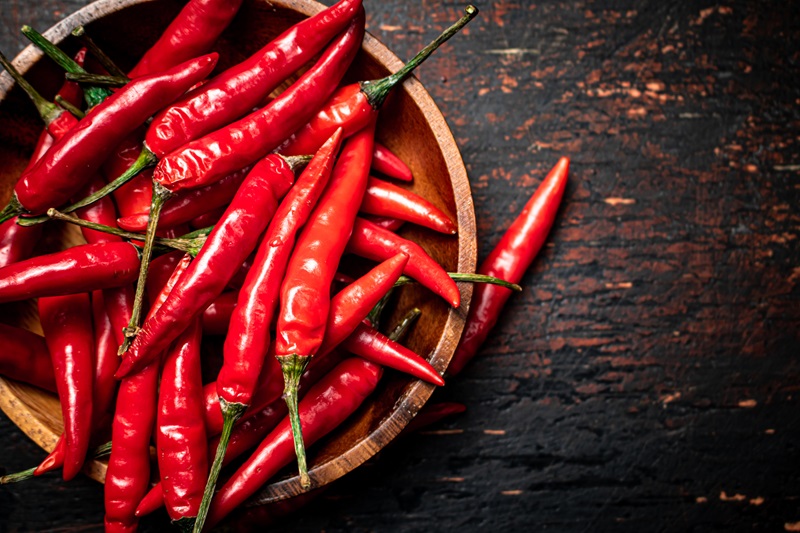
Cayenne peppers, a type of chili pepper characterized by their long, slender, red pods, are a versatile ingredient in global cuisines, from Creole and Southwestern to Asian flavors. While they can be consumed fresh, cayenne peppers are more commonly dried and ground into a fine powder, becoming an essential spice that adds a medium level of heat to a variety of dishes.
According to the Scoville scale, which measures the spiciness of peppers, cayennes register between 30,000 to 50,000 Scoville heat units. This positions them significantly hotter than jalapeños, which typically measure around 5,000 units, highlighting their potent spicy profile.
Cayenne Pepper Nutrition Facts
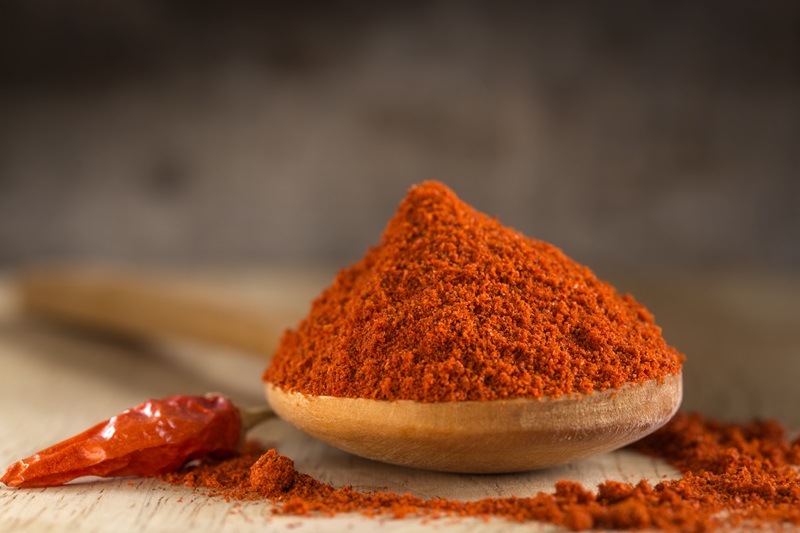
Cayenne peppers are an excellent addition to a health-conscious diet, boasting minimal calories and virtually no fats. As non-starchy vegetables, they fit perfectly into a weight management or loss plan, allowing for generous consumption without derailing your dietary goals. Notably, cayenne pepper in its powdered form is classified as a Free Food under the Nutrisystem weight loss program, indicating it can be enjoyed liberally.
A single fresh cayenne pepper impressively provides 72% of the Recommended Daily Allowance (RDA) for vitamin C and 50% for vitamin A, as highlighted by the Cleveland Clinic. These peppers are also a source of essential vitamins such as B6 and K.
Although the powdered spice contains lower vitamin levels compared to its fresh counterpart, a mere teaspoon still offers 15% of the RDA for vitamin A. Incorporating cayenne pepper into your diet not only spices up your meals but also significantly contributes to your nutritional intake, supporting overall health and wellness.
Unlocking the Health Benefits of Cayenne Pepper: A Spice with Power
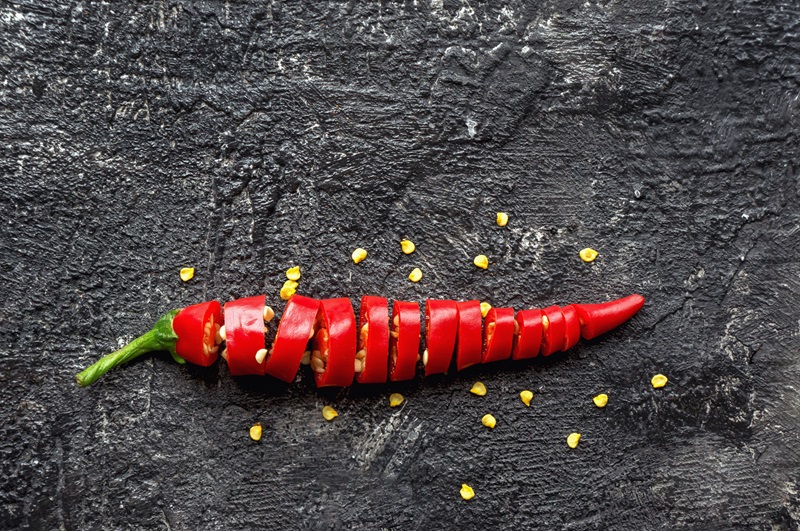
Cayenne pepper is celebrated as a superfood, thanks to its remarkable health-boosting properties backed by scientific research. This potent spice is a powerhouse of benefits, enhancing your health through multiple avenues.
Dive into the compelling findings from the realm of scientific studies to understand how cayenne pepper can revolutionize your wellness routine. Discover the science behind the spice that makes cayenne pepper a must-have in your diet for its vast array of health benefits.
Eases Congestion Naturally
Spicy foods like cayenne pepper are widely recognized s a natural decongestant for their ability to alleviate congestion and provide relief when you’re feeling stuffy. This natural remedy may be a go-to solution for helping to clearing up nasal passages, making it easier to breathe.
Pain Relief
Capsaicin is renowned for its ability to dull pain by reducing the activity of a pain-signaling neuropeptide. This compound also decreases inflammation, making cayenne a common ingredient in many topical pain relief treatments for conditions like arthritis and joint pain.
Enhances Digestion
Capsaicin plays a significant role in enhancing digestion by activating stomach nerves. This stimulation prompts the body to ramp up the production of essential gastric fluids and enzymes, aiding in the efficient breakdown of food. Furthermore, studies suggest that consuming spicy foods can also promote beneficial gut bacteria, contributing to overall digestive health.
However, it’s important to note that while cayenne pepper offers numerous health benefits, it may not be suitable for everyone. Individuals sensitive to spicy foods might experience heartburn or discomfort. Always listen to your body’s response to spicy foods and adjust your intake accordingly to avoid any adverse effects.”
Lowers Blood Pressure
When you ingest capsaicin, it causes your arteries and veins to widen, which leads to a decrease in your blood pressure. This effect is supported by a study in Clinical and Experimental Hypertension, highlighting its benefits for individuals with hypertension, reducing the risk of heart disease and stroke.
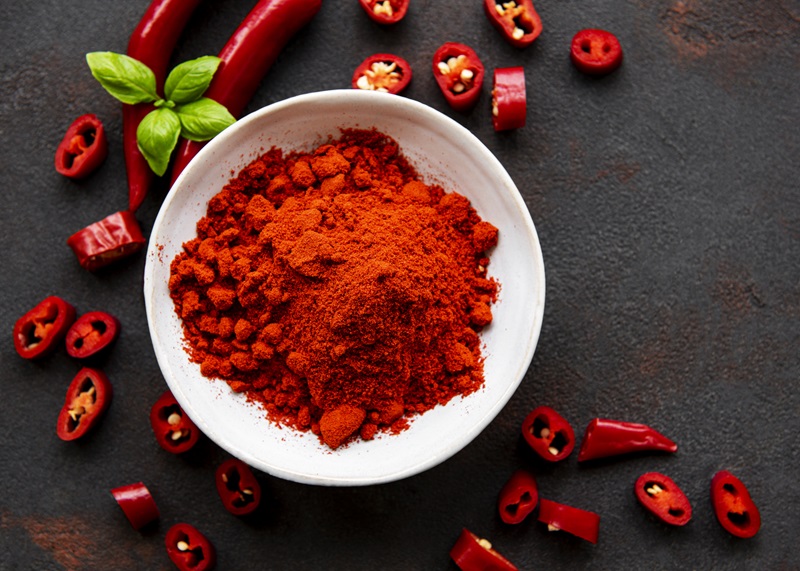
Cancer Risk Reduction
Cayenne peppers are rich in Vitamin A and other antioxidants, which help neutralize harmful free radicals associated with cancer development. An evaluation of more than 20 different hot peppers, published in the journal Food Science and Technology, revealed that cayenne peppers have the most antioxidants. Furthermore, capsaicin has been found to inhibit cancer-causing cell mutation, according to an extensive study in Frontiers of Oncology.
Boosts Brain Function
Regular consumption of capsaicin-rich foods may lower the risk of dementia, according to research in Translational Psychiatry, which found a correlation between a capsaicin-rich diet and improved cognition.
Promotes Satiety
Adding cayenne peppers to your diet can help achieve a greater feeling of fullness, essential for weight loss efforts. Studies in Bioscience Reports show that cayenne peppers increase satiety and reduce fat intake at subsequent meals. They note that these effects continue long after the meal is over.
Activates Metabolism
The thermogenic effect of eating cayenne peppers can slightly and temporarily boost calorie burning, supporting weight loss by enhancing metabolic rate.
Cayenne Pepper Shopping Tips
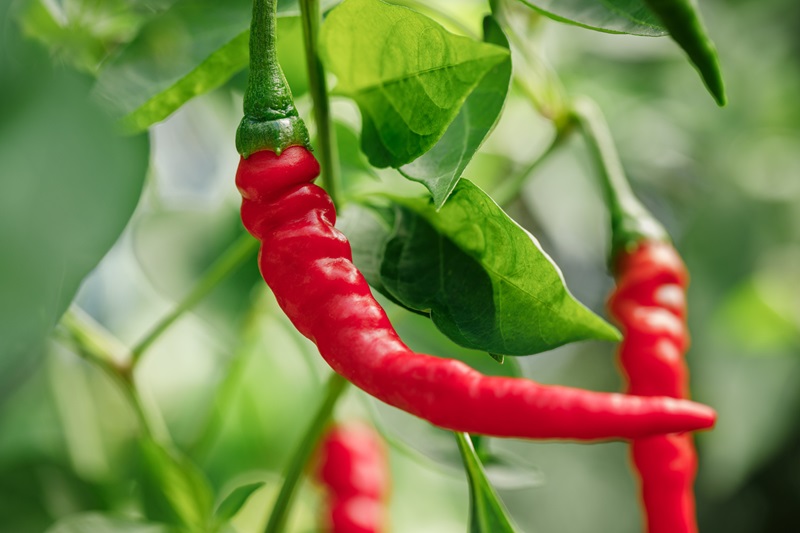
Fresh cayenne peppers are often available in supermarkets, specialty stores and farmer’s markets. They’re also easy to grow in a home garden or container.
When shopping for fresh peppers, look for those that are bright, shiny and firm. Avoid any that have soft spots, especially around the stem.
Store fresh cayenne peppers lightly wrapped in paper towels in your refrigerator’s vegetable drawer. Wash them only when you’re ready to use them.
You can dry cayenne peppers in a food dehydrator or low-temperature oven and they will keep for six months to a year. Powdered cayenne pepper will keep at room temperature for a year or two, and then gradually lose its potency.
How to Cook with Cayenne Pepper

Cayenne’s fiery flavor lights up almost any dish, from breakfasts to dinners and appetizers to desserts. Here are a few of delicious ideas for spicing your meals with this superfood:
- Chop up fresh cayenne peppers to use in chili, stir-fry, tacos, and fajitas.
- Give homemade cornbread a little heat with diced cayenne.
- Sprinkle the powder into omelets and other egg dishes, soups and stews.
- Wake up your taste buds and your brain by putting a dash of cayenne powder in your coffee.
- Turn ordinary hot chocolate into a sweet-and-spicy sensation with a shake or two of cayenne powder.
Healthy Cayenne Pepper Recipes

We use cayenne pepper to add zing to many of our favorite Flex meal and snack recipes. Here are a few of our favorites:
1. Sweet and Spicy Pumpkin Seeds
Pumpkin seeds provide you with concentrated healthy fats and vital nutrients. We love to toss them with cayenne pepper, along with chili powder, garlic powder and honey, then roast them until they turn crisp. Snack on them when you need a pick-me-up.
Get the sweet and spicy pumpkin seed recipe.
2. Slow Cooker Chicken Gumbo
Cayenne pepper is an essential ingredient in this classic New Orleans dish. It’s so lip-smacking good because the flavors deepen as they gradually blend in the slow cooker. Serve it with high-fiber brown rice and you will feel full for hours after you eat.
Get the Slow Cooker Chicken Gumbo recipe.
3. Spicy Shrimp Quesadilla
Shrimp is a smart choice when you’re trying to lose weight because it’s high in protein and low in saturated fats. The seafood also has a mild flavor, so seasonings like cayenne pepper light a spark on it. This recipe also calls for a chopped jalapeno, but if you like a little more heat, use a fresh cayenne pepper.
Get the Spicy Shrimp Quesadilla recipe.






